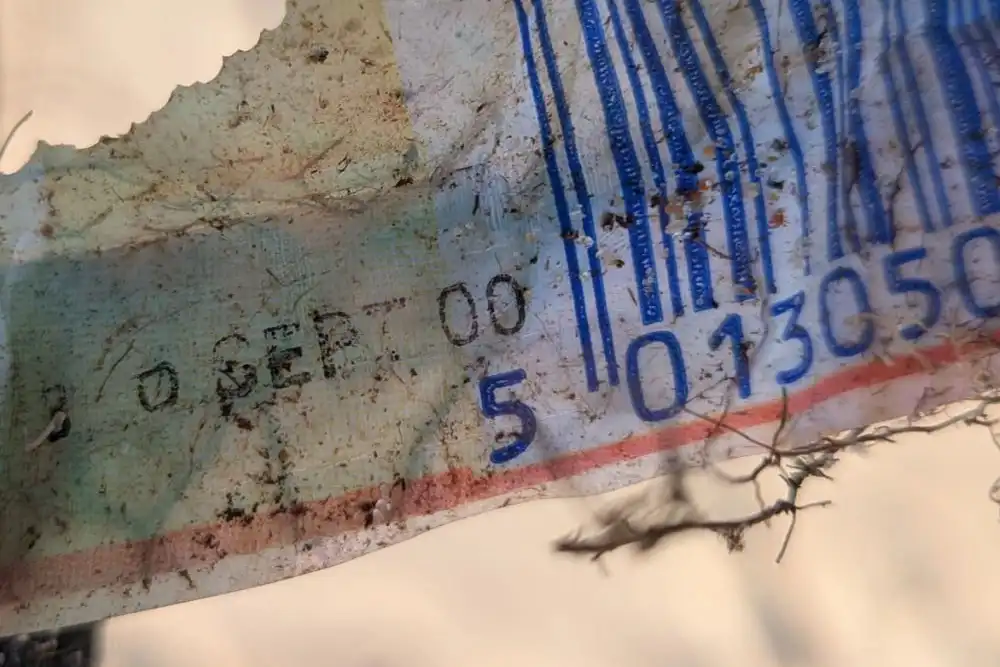
Between 19 – 28 September this year, 6,482 volunteers took part in the Marine Conservation Society’s Great British Beach Clean and removed 3,156 kilograms of waste from 97 miles of the UK’s beaches.
The volunteers removed and recorded a total of 232,229 pieces of litter from the beaches, data that the charity will use to influence policymakers in its campaign for cleaner seas.
One particularly outstanding aspect of this year’s event was a haul of retro rubbish, some dating back at least 50 years, showing just how long plastic waste can persist in the environment if it is not properly disposed of.
Included among the finds was a Golden Wonder crisp packet dating back to the 1970s (priced at just three pence!), a McDonald’s BBQ dip packet from the late 1990s and sweet wrappers more than 20 years old
‘It’s easy to feel nostalgic about old brands and logos, but these items should never have lasted this long,’ said MCS Beachwatch Officer, Clare Trotman. ‘Finding packaging from decades ago shows why tackling single-use plastic at the source is vital.
‘Plastic breaks down into microplastics threatening marine life, which can ingest or become entangled in them, so every piece of data our volunteers collect helps us not only clear litter from the beach, but push for a cleaner, healthier ocean.’
The complete results of the beach clean will be published in the Marine Conservation Society’s annual State of our Beaches report in March 2026.
Related articles

It is plastic, however, that has been most consistently high in beach cleans over the charity’s 31-year-old data log. The 2024 State of our Beaches report, for example, showed that nine of the top ten litter items were made of plastic.
‘It’s both fascinating and deeply concerning to see how long our litter lasts,’ said MCS Policy and Advocacy Manager Catherine Gemmell. ‘A crisp packet from the 1980s looks almost as fresh as if it had been dropped yesterday.
‘These finds are a time capsule of our throwaway culture and a clear reminder that single-use plastics don’t just disappear. We must see commitment and action from the governments of the UK to reduce single-use plastics, and we’re looking forward to the Deposit Return Schemes for drinks cans and bottles coming into force in 2027.’
Data from the Great British Beach Clean has helped secure major changes in the UK government’s environmental policies, such as charges for plastic carrier bags, which reduced their presence on surveyed beaches by 80 per cent; bans on plastic-stemmed cotton buds; and the forthcoming Deposit Return Schemes set to launch across the UK in October 2027.
Volunteers from the 2025 Great British Beach Clean, which this year was sponsored by holidaycottages.co.uk, also reported some unexpected items, including a hook-a-duck toy, a paddling pool, a gold wedding ring, a roll of vinyl wallpaper, 37 plastic flowers, and, rather disturbingly, a preserved crab in a jar.
‘Our volunteers never know what they’ll uncover,’ said Ms Trotman. ‘From crisp packets reminiscent of childhood to the downright bizarre, it’s a reminder of how much of our waste can end up in the ocean – and stay there for decades.’
To find more information about the MCS and local beach clean events, head to the MCS Beach Clean web page.



